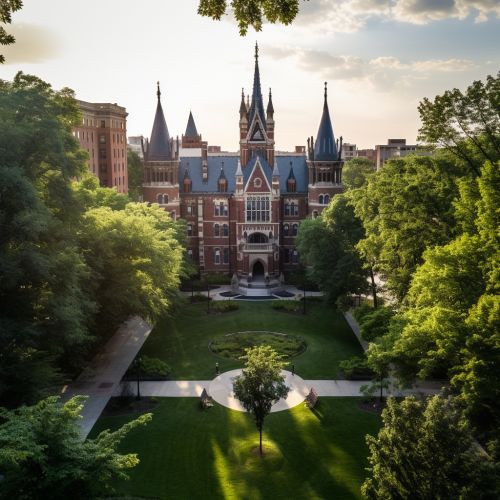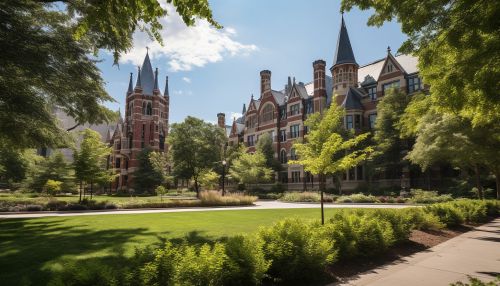University of Pennsylvania
History
The University of Pennsylvania (UPenn) is a private Ivy League research university located in Philadelphia, Pennsylvania. It was founded by one of America’s founding fathers, Benjamin Franklin, in 1740. Franklin's progressive vision of higher education emphasized an education of not just the clergy, but also public service, commerce, and skilled trades. This vision was a significant departure from the traditional European emphasis on an exclusively classical curriculum.
In 1765, UPenn established the first medical school in the colonies, marking the university's rise as a center for medical training and research. The university continued to expand throughout the 19th and 20th centuries, becoming a major hub for advancements in various fields, from law and economics to engineering and social sciences.
Campus
The University of Pennsylvania's campus covers over 279 acres in a contiguous area of West Philadelphia's University City district. The campus is known for its Collegiate Gothic architecture, a style characterized by its use of local schist stone and intricate decorative elements. The campus is home to several significant buildings, including the Fisher Fine Arts Library, designed by acclaimed architect Frank Furness, and the University Museum, one of the largest archaeology and anthropology museums in the world.


Academics
The University of Pennsylvania is divided into four undergraduate schools and twelve graduate and professional schools. The undergraduate schools include the College of Arts and Sciences, the School of Engineering and Applied Science, the Wharton School of Business, and the School of Nursing. The graduate and professional schools offer a wide range of programs, from law and medicine to design and social policy.
UPenn is known for its interdisciplinary approach to education, with many programs encouraging students to take courses across multiple schools. The university also offers dual degree programs, allowing students to earn degrees from two different schools simultaneously.
Research
As a leading research university, the University of Pennsylvania is home to numerous research institutions and centers. The university has made significant contributions to various fields, including medicine, economics, and engineering. Its faculty and alumni include numerous Nobel laureates and members of prestigious academic societies.
UPenn's research efforts are supported by a robust infrastructure, including state-of-the-art laboratories and research facilities. The university also maintains partnerships with various industries and institutions, facilitating collaborative research efforts and providing students with valuable experiential learning opportunities.
Student Life
UPenn's vibrant student life is marked by a wide array of extracurricular activities and organizations. The university has over 450 student clubs, covering interests from academics and arts to community service and cultural groups. UPenn also has a strong Greek life, with numerous fraternities and sororities on campus.
Athletics are also a significant part of student life at UPenn. The university's athletic teams, known as the Quakers, compete in the Ivy League conference of the NCAA Division I. The university's athletic facilities include the historic Franklin Field and the Palestra, often referred to as the "Cathedral of College Basketball."
Notable Alumni
The University of Pennsylvania has produced numerous notable alumni who have made significant contributions to various fields. These include former U.S. President William Henry Harrison, billionaire entrepreneur Elon Musk, and Nobel laureate economist Richard Thaler. The university's alumni network spans across the globe, fostering connections and opportunities for both current students and graduates.
